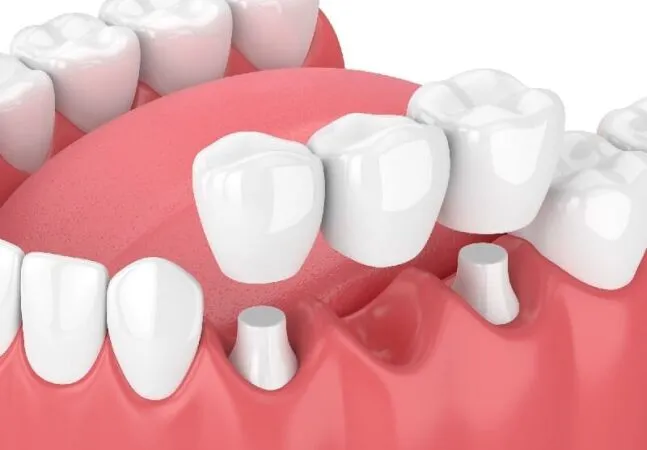Headaches And TMD/TMJ Relief From Toronto’s Dental Expert Dr. Aksana Tkachenko

Headaches And TMD/TMJ Relief From Toronto’s Dental Expert Dr. Aksana Tkachenko
- 25+ years of practice
- 2021 New Modern Dental Studio
- Exceptionally COVID-19 SAFE Dental Experience, IPAC Non-Touch Equipment and 0% Bacteria Growth Surfaces
- Pain-free procedure while you watch a NETFLIX movie!
- Immidiate Emergency Appointment
- FREE Visitor Parking
Call us: (416) 550-9000
Headaches and tmd/tmj relief with Toronto’s Expert Dr. Aksana Tkachenko
Headaches, jaw pain, and bruxism are all commonly caused by TMD, or Temporomandibular Joint Disorder, a common condition that affects the TMJ (temporomandibular joint), which is located on both sides of your face, directly in front of each ear.
Essentially, these joints connect your jawbone to your skull. However, because they can rotate, move forward, backward, or side to side, the temporomandibular joint is considered one of the most complex joints in the entire human body. These movements are made thanks to a combination of ligaments and muscles which allow us to speak, chew, swallow, and open our mouths. When an individual has a problem with their temporomandibular joint, they’re said to have TMD.
Symptoms of TMD typically include pain or tenderness in or around either ear, the jaw, face, or temples. These symptoms are commonly observed with popping, clicking, or crunching noises while you’re chewing, yawning, or simply opening or closing your mouth.
Additionally, TMD is often associated with neck pain or headaches. Therefore, if you’re experiencing any of these conditions, you must consult with your dentist as soon as possible.
Schedule Your Free Consultation today.
Call us: (416) 550-9000

Free Consultation
Convenient service hours
25+ years of practice
Great experience
COVID-19 Protection Excellence
We’re open early mornings
TMJ/TMD: How it Might Be Affecting You, And How to Find Relief
Pain in your neck, jaw, or face can be excruciating, and the situation is only made worse when you’re not even sure what’s causing it. Typically, however, if you’re experiencing this type of pain, it’s likely being caused by an issue with your temporomandibular joint, which connects the upper and low jawbones.
To help you understand if you’re experiencing TMD, it’s important to know what signs and symptoms to be on the lookout for.
Symptoms of TMJ
The most common symptoms of TMD include, but are not limited to:
- Pain, swelling, or tenderness in your jaw
- Neck or shoulder pain
- Facial pain
- Swelling on one or both sides of the face
- Pain in or surrounding your ears
- Pain or discomfort while chewing
- Frequent toothaches
- Headaches, often associated with dizziness
- Tinnitus (ringing in the ears)
- Difficulty opening or closing your mouth
- Locked jaw, which makes it difficult to open or close your mouth
- Clicking, popping, crunching, or grinding noise while opening or closing the mouth
Causes and Risk Factors
While TMD symptoms are easily recognizable, determining what’s causing the condition isn’t so simple. Your dentist may not even be able to tell you precisely what’s causing the condition.
With that said, TMJ is typically associated with the following situations:
- Arthritis or damage to the cartilage
- Jaw injury (typically from whiplash or a severe impact)
- Chronic bruxism (clenching or grinding teeth)
- Orthodontics
- Stress or anxiety that causes you to tighten facial and jaw muscles
- Poor posture
- Chewing gum too often
- Other connective tissue diseases that affect the TMJ
- Got a question about TMD/TMJ? Schedule your free consultation today.
Call us: (416) 550-9000
Relieving Headaches Associated With TMD/TMJ
What Can Cause TMD?
Typically, temporomandibular disorder (TMD) is caused by a combination of factors, such as injury or diseases like arthritis. Stress and the clenching or grinding of teeth are often said to worsen the symptoms of TMD.
Additionally, dentures or certain habits, such as chewing one’s fingernails, are often associated with the condition. However, it’s usually unclear if these are the cause or the result of the condition itself. The level of occlusion (bite) that a person has may also cause TMD symptoms in some, but not all, individuals.
For instance, some individuals with minor occlusions experience severe TMD symptoms, while others with major occlusal issues won’t show any TMD signs whatsoever.
Finally, the temporomandibular joint’s resistance can also play a role in TMD. Incidentally, women suffer from TMD more often than men. With that said, a detailed examination will provide your dentist with the information needed to establish the most appropriate treatment.

Frequently Asked Questions
How Is TMD Treated?
Typically, the symptoms of TMD are resolved without any actual treatment. However, to ease the symptoms, patients may try gently massaging the jaw muscles or placing either a hot or cold compress on their jaw. Additionally, sticking to a soft diet or cutting your food into smaller pieces can help alleviate the symptoms. It’s also best to avoid hard, sticky or chewy food.
At the same time, we recommend relaxing your jaws as much as possible and not opening your mouth too wide, especially when yawning.
When your jaw is perfectly relaxed, your teeth should be just slightly separated, your tongue should be resting on the bottom of your palette just in front of your bottom teeth, and your lips should either be just touching or slightly separated. Other than when you’re chewing, speaking, or swallowing, there should always be a slight gap between your lower and upper teeth.
If you’re having trouble keeping your jaw relaxed, many find it helpful to put the tip of their tongue just behind their upper front teeth. This works to create a “natural splint,” which will pressure the jaw muscles.
Additionally, many people clench or grind their teeth at night. This problem is often exacerbated by stress, which tends to disrupt our sleep. In this case, the best treatment is generally to adhere to a better sleep regimen, which should reduce night-time clenching, alleviating the symptoms of TMD.
How Can Chroma Dental Help with TMD?
After a thorough oral examination, which typically includes x-rays, your dentist will be able to determine the most appropriate course of treatment for you.
In many cases, a nightguard, or occlusal splint, may be recommended. These are typically made of clear plastic, which will prevent you from grinding your teeth together while you sleep. In turn, the splint will also keep your teeth slightly separated, which will help your jaw relax while it is worn.
In some cases, an upper and lower splint will be recommended. However, a detailed exam is needed to determine if this is the case. If the issue is being caused by occlusion, wearing a splint will typically reduce symptoms over the first few days and weeks.
Alternatively, if the issue is caused by cartilage or bone degeneration from arthritis, wearing a splint will often partially reduce symptoms by reducing the force applied to the joint.
In some cases, TMD is the result of a poorly fitting denture or partial denture. Therefore, amending the appliance may also help reduce symptoms.
What If an Occlusal Splint Doesn’t Help?
For those who continue to suffer from TMD symptoms, we may be able to refer you to a specialist who deals with severe cases of the condition. This might be an oral surgeon, depending on your condition’s severity.
Regardless, as we’ve already mentioned, a thorough exam is the best course of action, allowing you to determine the best treatment for you.
Are You Suffering From TMD/TMJ? Contact Chroma Dental Today!
Here at Chroma Dental, we truly understand the pain and discomfort associated with the symptoms of TMD, which is precisely why we’re dedicated to helping you find relief as soon as possible.
Contact us today!
Call us: (416) 550-9000













